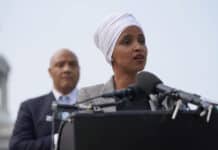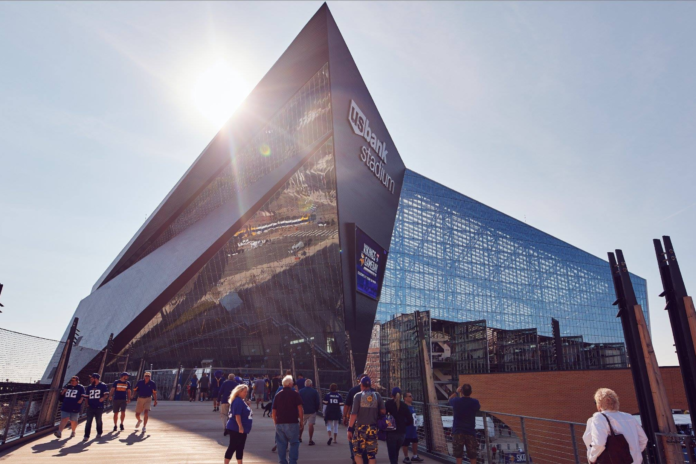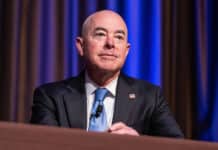A state representative from Minneapolis says his city can’t afford to make its $17 million payment for the Vikings stadium — so he wants Greater Minnesota to do it.
The construction of Minneapolis’ $1.1 billion stadium was a hotly contested issue around 2013, when construction began. Opponents of the project said it’s not fair for rural Minnesota taxpayers to be saddled with the burden of financing a Minneapolis-based project, and that the price didn’t justify the potential benefit anyway. Proponents of the stadium said that the distribution of payments split between the city of Minneapolis, the Vikings organization and the state was fair.
Ultimately, U.S. Bank Stadium was built and opened in 2016. Prior to construction, Minneapolis had to cover just 13% of the stadium’s cost, pitching in $150 million over an extended period of time.
However, now that the city’s first debt payment of $17 million is about to be due, DFL state Rep. Mohamud Noor says his city can’t pay, according to the Minneapolis/St. Paul Business Journal.
Noor, who was recently appointed chair of the House Workforce and Business Development Committee, said the coronavirus pandemic makes it impossible for his city to afford the stadium.
“That was then,” he said, speaking on the payment deal Minneapolis signed eight years ago, “this is now. We’ve got a global pandemic.”
“I’m just kind of surprised that they’re taking this approach,” remarked Republican state Sen. Julie Rosen, according to the Star Tribune. “It [the original agreement] was a very good deal for Minneapolis.”
Minneapolis Mayor Jacob Frey also said he’d be open to state support. Noor and his allies believe that it’s fair to force Greater Minnesota taxpayers to pick up the tab for Minneapolis’ portion of the stadium bill because the stadium technically belongs to all Minnesotans, according to the Star Tribune. However, many disagree on this point.
“The stadium clearly doesn’t belong to all Minnesotans. It doesn’t even belong to Minneapolis residents. It’s not like anyone can just pop over there and poke around,” remarked Isaac Orr, a policy fellow at the Center of the American Experiment.
Meanwhile, U.S. Bank Stadium sits empty each weekend because of coronavirus regulations. Initially, the team planned to allow a limited number of fans into the stadium over the course of the season, but this effort was cancelled on Veterans Day, per CBS News.
“While we have worked hard to develop a safe and responsible plan to bring back a limited number of fans, our decisions have been based on medical guidance with public health as the top priority,” the team said at the time.

















